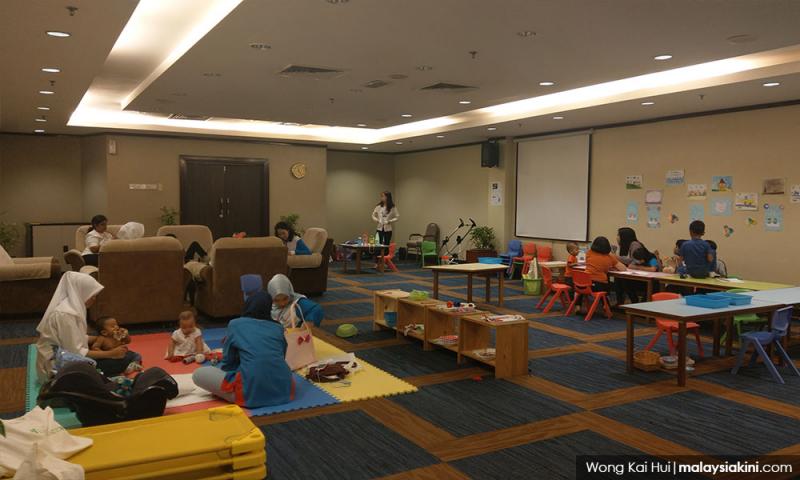LETTER | Children are often described as the heartbeat of our society and the promise of our future.
This belief fuels significant investment from governments worldwide into early childhood care and education (ECCE), recognising that the first five years of a child’s life - often called the formative years - are crucial for their rapid development.
In Malaysia, ECCE encompasses the care and education of children from birth up to age six, and is overseen by two ministries.
The Women, Family, and Community Development Ministry manages care for children up to age four, while the Education Ministry manages kindergarten for children aged five and six.
In recent years, the demand for childcare services has surged. Traditionally, Malaysia being a collectivist community, it has always been our cultural norm to seek out or have the support of extended families, specifically grandparents, to assist in caring for young children while parents are at work.
Alternatively, some mothers used to stay at home. At least, this was the scenario growing up in the ‘70s to the ‘90s.
However, there has been a significant shift in this demographic pattern whereby the complexities of the family structures have been changing.
The last decade has seen more nuclear families on their own. Work opportunities bring the migration of couples with young children away from their traditional support system.
Moreover, the economic necessity is such that both parents are working professionals, and as such, childcare services have become inevitable for parents.
This has led to a rapid increase in the number of childcare centres - a straightforward law of demand and supply.
Gap in training
Parents now have numerous options, but with this abundance of choice comes the challenge of finding quality care. The heart of quality childcare lies in the classroom experience, which depends heavily on the teachers.
A well-trained and experienced teacher is crucial because infants and toddlers spend much of their day at these centres, ranging from half a day to a full day.
Recognising this, the government mandated minimum qualifications for early childhood teachers as part of the Education Blueprint 2013-2025.
By 2020, all early childhood educators were required to have completed the Kursus Asuhan Permata (KAP), which is accredited by the Women, Family and Community Development Ministry or hold a diploma in early childhood education.
This has led to many universities offering specialised courses in this field. However, a significant gap remains: while these programmes focus on educational techniques, they often overlook the practical aspects of caring for very young children.
As a result, many new teachers face a steep learning curve when they start working. Many of them have little or no knowledge of caring for these younger children as they were not trained for it.
In my years of lecturing, I have seen many students who get a “culture shock” or are unprepared when they are asked to perform tasks like changing diapers or preparing formula milk.
Although modern technology allows for quick access to information, it doesn’t replace the hands-on experience and confidence needed for caring.
The gap still exists as the curriculum does not provide exposure and nurture teachers’ confidence when it comes to working with infants and toddlers.
When teachers are not adequately equipped, that is when problems arise. Imagine a teacher who lacks the skills, knowledge or confidence to handle infants or toddlers, he or she would be overwhelmed with emotions.
As a result, these teachers would either lose their temper and hurt those under their care or panic and not know what to do in cases of emergencies.
Act of caring
We have time and time again read and heard of many stories of accidents or injuries happening to young children in the care of childcare providers.
The Child Care Centre Act 1984 (Act 308) was enacted to protect the safety, health, and well-being of children in these centres, highlighting the critical need for properly trained staff.
Infant and toddler care is an area that is not spoken about, albeit it is an extremely important aspect of early childhood. Early childhood educators need to know the intricacies and be competent in the art of caring as much as they are skilled in the art of teaching.
In the end, providing exceptional care for our youngest citizens is not just about meeting regulatory requirements. It’s about nurturing the confidence and skills of those entrusted with their well-being.
The writer is an early childhood education and special educational needs stream coordinator, and a senior lecturer at Taylor’s University.
The views expressed here are those of the author/contributor and do not necessarily represent the views of Malaysiakini.





